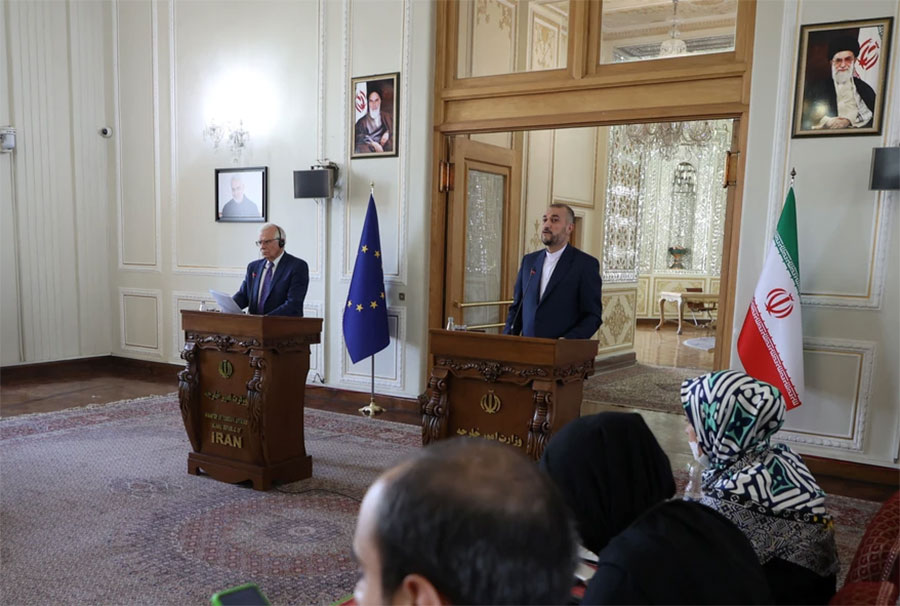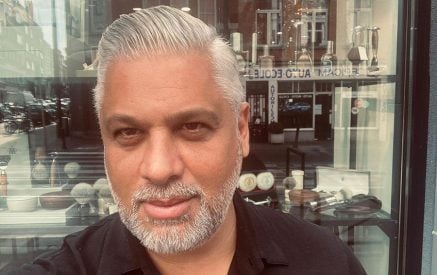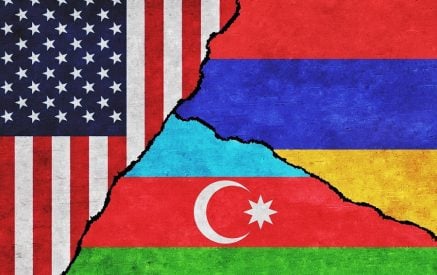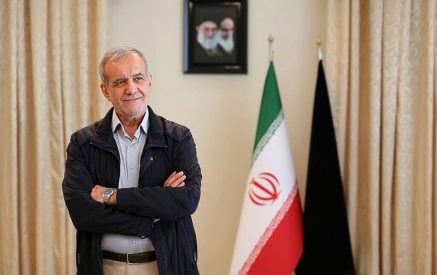Some members of the European parliament want to take a hard line but EU leaders need to focus on the bloc’s interests
The crash of the helicopter and resulting death of the Iranian president Ebrahim Raisi and the country’s foreign minister Hossein Amir Abdollahian came at a tense time in EU-Iran relations. Tehran’s support for the Russian war in Ukraine, domestic repression and support for Hamas, classified as a terrorist organization in the EU, have caused many EU leaders to perceive Iran as one of the bloc’s top geopolitical adversaries.
Read also
Despite that background, European leaders have expressed condolences and offered assistance in dealing with the aftermath of the accident. Reacting to the news of the crash, Charles Michel, the former prime minister of Belgium and currently the president of the European Council wrote on X that he and EU member states were “monitoring the situation closely.” When the deaths of Raisi and Abdollahian, as well as others onboard, were confirmed, Michel expressed, in the name of the EU, “sincere condolences” and offered “thoughts to the families” of the deceased. EU high representative for foreign policy Josep Borrell expressed similar sentiments.
Even before the deaths were confirmed, the EU, through its commissioner for crisis management, civil protection and humanitarian aid Janez Lenarcic announced that the bloc was activating, at the request of Iran, its emergency satellite mapping services in order to locate the crash site. The offer and hashtag that accompanied it — #EUSolidarity — were reposted by Borrell, but met with immediate backlash from other circles, notably members of the European Parliament who took issue with what one — from a liberal bloc — construed as the Commission’s support for the regime in Tehran and “mockery of the brave fighters for human rights in Iran.” Another — from the Green faction — chimed in to demand that the “solidarity” is instead expressed through granting visas to “the human rights defenders and other victims of the regime” in Iran.
Lenarcic’s team countered that “facilitating a search and rescue operation is not an act of political support to any regime or establishment. It is simply an expression of the most basic humanity.” The critics might have found it ironic that Iran would ask the EU for assistance, given the abysmal state of bilateral relations, but the Commission acted fully in compliance with the EU’s own guidelines on humanitarian aid. There was no love lost for Ebrahim Raisi in Brussels, but, at a time when the EU’s credibility is flagging due to its divisions and confusions on Gaza, such a clear case of consistency with its own declared values is something to build on — apart from a simple act of decency.
And the EU would indeed need to rebuild its political capital in relations with Iran. It has important interests to pursue. For one, Germany and France, alongside the non-EU Britain, are signatures of the flailing nuclear agreement known as JCPOA. As Iran’s nuclear program advances following President Trump’s withdrawal from the JCPOA in 2018 and President Biden’s subsequent failure to revive it, concerns increase in Europe, as they do elsewhere, that Iran may be approaching the nuclear threshold status, and only a political decision away from an actual weaponization of its nuclear program.
Tensions in the Middle East, where the EU launched earlier this year its maritime mission to protect the shipping routes in the Red Sea from the Iran-backed Houthi rebels is another major concern for the EU. And there are still EU citizens wrongfully kept in detention by Iran, such as the Swedish national and official from the Borrell-led European External Action Service Johan Floderus, on allegedly spurious charges of spying for Israel.
Those who lambast EU officials like Michel, Borrell, and Lenarcic for supposedly failing to take a “tough line” against Tehran neglect to explain how these vital interests will be served in the absence of any diplomatic engagement with Iran. Following maximalist demands would be even more absurd at a time when the United States, Europe’s primary security guarantor, is itself engaged in talks with Tehran, through intermediaries, on de-escalation of tensions in the Middle East and on the nuclear file. The EU, in fact, has an advantage over the U.S. in that it doesn’t need to go through third parties to engage with Iran, since it already has direct channels of communications.
The EU will have to thread carefully in the coming months leading up to the elections of the new president in Iran. Its core interests, as outlined above, remain unchanged whoever is in charge in Tehran. The EU is likely to concentrate on them, even if that would fall far short of the aspirations to see a democratic change in Iran. The possible elevation of the current deputy foreign minister and chief nuclear negotiator Ali Bagheri-Kani to the position of the foreign minister may cause some advances in reviving at least some form of a nuclear agreement. As to the presidential elections, the most likely course of action for the EU will be to wait and see and then deal with whoever emerges on the top, mindful of the fact that in the Islamic Republic president has limited room in setting foreign policy, with the final decisions to be taken by the Supreme Leader.
One potential stress ahead for the EU could be a re-emergence of the nation-wide protests in the run-up to the elections. Should this be the case, there will likely be increased pressure on the EU policymakers from the MEPs, exiled activists and possibly some opposition figures from Iran itself to throw their lot with the protesters. Yet, however tempting it might be to do so, the EU should not act on an assumption that the downfall of the regime is around the corner. Protests are a regular occurrence in Iran, yet the regime has demonstrated a considerable resilience. The EU should, therefore, focus primarily on its own interests. In any case, it is up to the Iranians, not the EU, to determine the future form of governance of Iran.























































